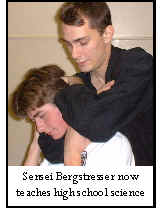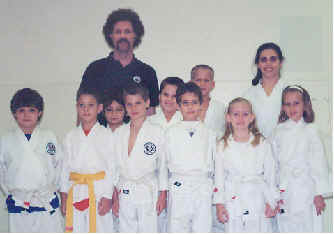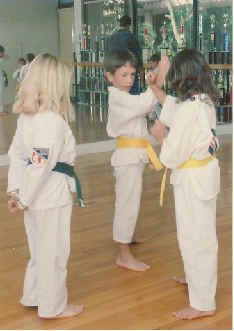
December News
Learning: The Gift that Keeps on Giving
I was speaking with one of our students recently, a psychologist who works with the school system, who remarked that what is missing in the educational process in this country is the opportunity to develop what he called “independent learning”. He went on to say that children must be able to establish habits early in life that allow them to learn on their own so that when they become adults they will know how to adapt to change. However, this does not mean that children should be abandoned to learn on their own. In a recent article on remedial Broward schools the author indicated that most of the teachers just set assignments and considered their job complete. Particularly with children who have failed to adapt to school it is important that teachers be able to instruct and tutor them through the steps necessary to grasp the key concepts that the assignment covers. At the moment it appears that in many communities in the United States testing has become the central theme in the school experience, as if passing tests were the only barometer for learning.
In his book “Learned Optimism” Dr. Martin Seligman talks about how, when children are rewarded for everything they do, then there is no understandable way for them to learn the effect of their behavior on their environment and vice verse. How can a child figure out for themselves what works and what does not if they are being given the same reinforcement regardless of what they do? While we always try to keep our reinforcement positive at the Dojo, we also try to be suitably discriminating, by offering the reinforcement only when it is deserved. The red stripes and belts only mean something if you have to earn them.

At the karate school we often see well-meaning adults interrupting the learning process when they circle their child’s card, fix their belt, put their shoes away for them and so on, when those tasks are part and parcel of the learning program. Martial arts helps students become more independent, more focused and more responsible so that they can indeed look after themselves, no matter what their chronological age. We must not do for them that which they can and should do for themselves.
In the film “Raising Helen” Kate Hudson plays a newly adoptive Mom who inherits her newly deceased sister’s three children. It is interesting to watch her attempts to be both their buddy, and their Legal Guardian (replacement parent). When the film opens she stops by their home for a celebratory dinner, during which she pulls aside her teenage niece and asks to see her fake ID; they share a “favorite auntie” moment. Later in the movie, as a struggling caretaker, she is unable to control her niece, who sneaks out to a hotel with the local “bad boy”. She tells her older sister who is also a Mom, “I don’t want her to hate me.” As parents, teachers and adults we cannot be “buddies” with the children we are responsible for teaching or raising. We must fully accept our responsible roles and provide leadership and fair, consistent boundaries. We can still have fun, but we also have to be suitably grown-up so that they can learn from us.
Sensei Robert H. Mason © 2004
Working Out After School
According to a recent survey about eighty percent of Middle and High School students take part in organized activities after school. The majority prefer structured activities rather than just a place to hang out. Parents also were found to prefer activities that develop the children’s interests and hobbies while keeping them out of trouble.

Sports and other athletic activities like dance and Martial Arts are the most popular. The message to parents, according to Ruth Wooden, President of “Public Agenda”, is that “most kids are thriving from out-of-school activities, and it’s really worth your time and a little nagging to get the kids involved.” Nine out of ten students agreed that they need to be pushed by parents into things that are good for them, even if they might complain.

Bernard Gutin professor of pediatrics at the Georgia Prevention Institute, Medical College of Georgia in Augusta, recommends all children take part in activities in an environment where they can move more. “Give them a holiday gift that is active like a program membership, not passive like video games” he suggests.
Soothing the Savage Beast:
Martial Arts and the Development of the Self
Michael Medved appeared on C-Span in November discussing his latest book on the American addiction to the news media. Medved believes that TV is a negative influence in the lives of the average American, who spends about twenty-nine hours a week watching the tube; more time than on any other recreational activity.
Medved says that children are turned from “barbarians” into civilized beings by developing three characteristics in the culture: patience and perspective, optimism and self-confidence, and solid connections to family and community. Before the advent of television children learned these characteristics by participating in the culture where they lived. For many that process is now absent, replaced by TV.
The value of Martial arts is that it teaches personal growth in an active and practical way and promotes physical and mental health, unlike TV, which is a passive pursuit.